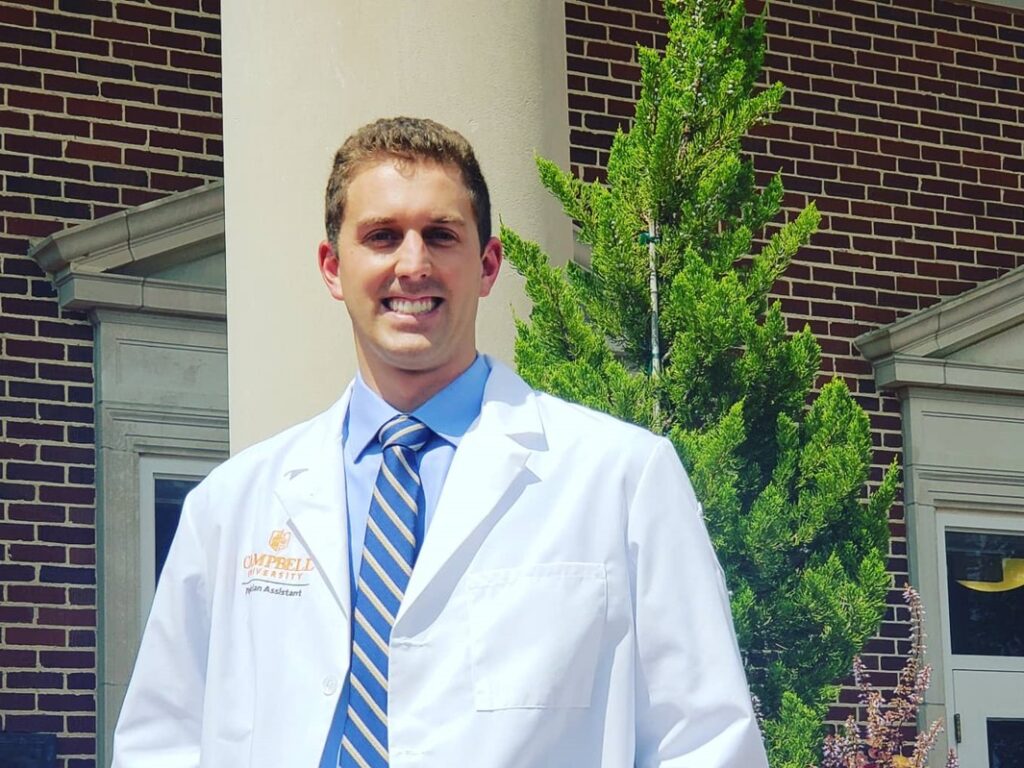Advice and Tips for your Physician Assistant Application

Alexander Oliver (’22 MPAP Candidate) shares insight on the very competitive process of applying to physician assistant programs.
__________________________________________
Getting accepted in a physician assistant program is no small feat. Acceptance into a physician assistant program is as competitive as medical schools. The PA profession has an ever-increasing demand so keep applying! We will need you for the next generation of providers. To help get you there, here are some tips while you do your applications. For many folks that elect to apply to a PA program it might take more than one application cycle to gain acceptance. If you are not selected, please don’t be discouraged! Email the program and/or an advisor (if you have one) about how to improve your application for the next application cycle. Be persistent in your applications and show improvement each time you do. The average number of programs that an applicant applies to is approximately eight (but this number will vary based on where you look for information). Conduct research to see what each program’s mission focus is. For example, Campbell’s PA program is focused on rural health and the primary care setting. You want to make sure that you will be a good fit for that program’s mission model.
From an academic standpoint, earn the best grades you can for the classes that programs require as prerequisites. Even if it means taking some classes over again, you need to be competitive with these grades. I took the GRE three times myself to improve my scores. I knew this would be the weakest part of my application, so I made sure the remainder of my application was robust. It is highly recommended to take GRE Prep courses or buy GRE prep books to improve your test scores if you want to give yourself some help. I volunteered at local clinics and in the community. This is just one example of how to bolster your application where you know you will be deficient in another area. Make sure you explore other avenues that could really enhance your application and make it more well-rounded, especially if you know there is a weak spot. Other less academic means might be attending open house information sessions (virtually or in person) or how far a strong letter of recommendation can make admission committees give your application a deeper look. Take time to shadow practicing PAs since you will more than likely need a letter of recommendation from one, most programs usually require a minimum time shadowing, and gives insight to what PAs do day in and day out.
When it comes to CASPA’s section for your personal statement, this is your linchpin. Your personal statement needs to be the strongest piece of your application. The people who read all these applications read hundreds, if not thousands of them. You need to find a way to make yours unique. Start off with an opening paragraph that will catch the reader’s attention. Telling a truthful story from your previous medical experience or a story that really displays character are good examples. You need to entice them to keep reading your essay so they can see the subsequent paragraphs that highlight why they should select you for an interview over other applicants. The paragraphs that follow should illustrate who you are as a person, student, and future provider. Humility is a wonderful characteristic to have, but your personal statement is not a time for this trait. You need to ‘toot your own horn’ (so to speak) and toot it loud! Have the reader see that you are more than just numbers and grades. They are examining your application from the 30,000 feet perspective but you need to draw them in closer. List several qualities that really define who you are and then link them to how they will make you an asset to their program and as a future provider of medicine to those who come seeking your care.
Finally, submit your application as early as possible. I cannot stress this enough. Many programs have a rolling admission process, which means you should apply early even if you have requirements pending (as long as these requirements are not required at the time of application). Let the admissions committee see your application and your dedicated intention to becoming a physician assistant. Then, you can button up the remaining requirements to ensure your application is complete to the program’s requirements. I recommend multiple people look over your application, not just for grammatical errors in your personal statement but across all details of your application.
Regardless of how strenuous the process might be and whether it takes you one try or five, if you want to become a physician assistant you will need to sacrifice time and effort in making that dream a reality. Composing an excellent personal statement takes time. Studying hard to do well in your prerequisites classes takes time. Asking medical professionals for exemplary letters of recommendation takes time. Taking the GRE (potentially more than once) takes time. This sacrifice of time is not lost though. Think of it as an investment in your future. Take solace in pursuing your dreams. Taking that first step displays bravery and courage toward an exciting future for yourself. To quote Jesse Owens, “we all have dreams. But in order to make dreams into reality, it takes an awful lot of determination, dedication, self-discipline, and effort.” I wish you all the best in your endeavor to become a physician assistant.
Alexander Oliver
PA-S1
CUPA Class of 2022
Wallace Student Society – Vice President
